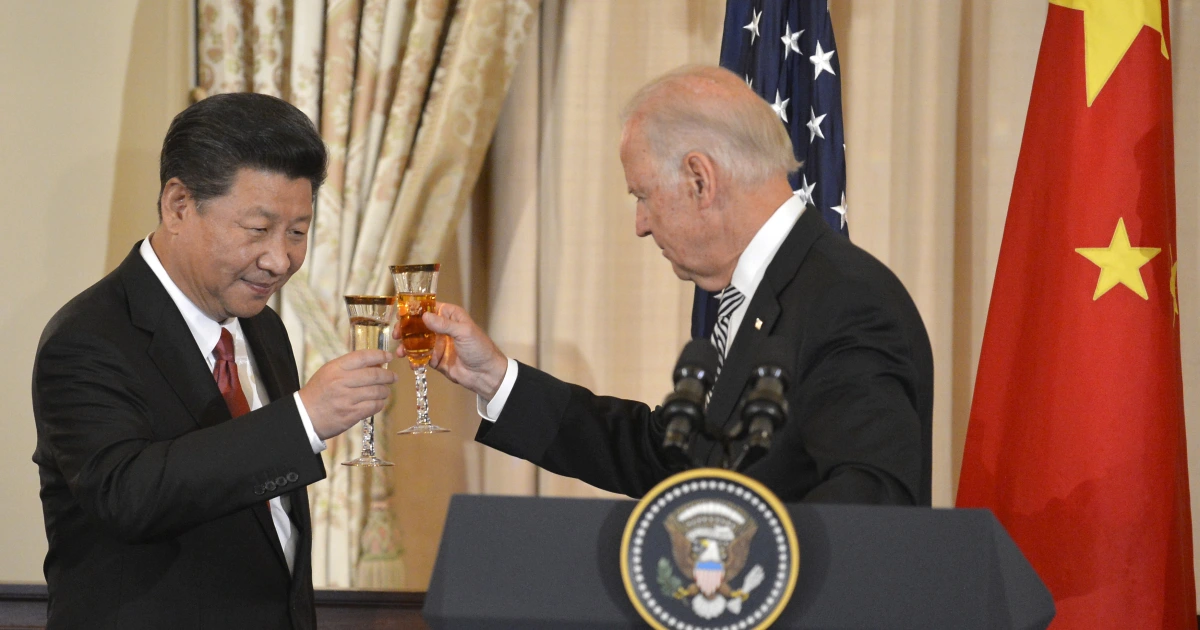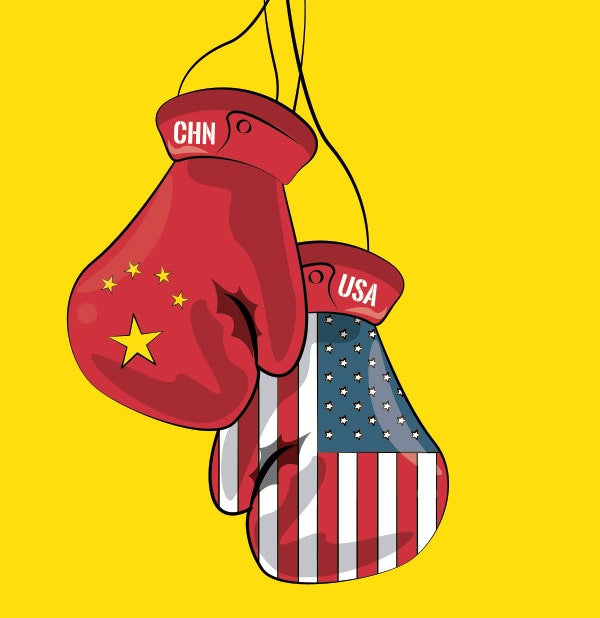“China is like an elephant on a bicycle. If it slows down, it could fall, and the whole earth would share”
(quote attributed to a Chinese economist).
Between the 9th and the 16th of June, the President of the US, Joe Biden, started his first international trips since his settlement, condensed in the political agenda as “five Cs: Covid, China, Climate, Cybersecurity, and Corruption.” He joined four summits: the G7, the EU, the NATO, and a final bilateral meeting with Putin (Wenshan Jia). They had two main goals: to rebuild the transatlantic unity and relations with Europe that Trump has broken during the last four years of presidency; and gradually isolate China from the rest of the world. Biden often named the meeting as a “Summit for Democracy”: in fact, both Russia and China were not invited. Moreover, the UK took the initiative to summon Australia, India, and South Korea, transforming a starting G7 into a D10 (Villa, Villafranca): a strategic helpful move to facilitate to find an agreement among the remaining present countries at the G20 about for example the 15 percent global minimum tax.
Beijing isolation as a way to solve the American problems
Biden is experiencing difficulties both in domestic and foreign affairs. The political, social, and cultural divisions remain, or better, worsened: the investigation on the Capitol Hill assault failed, as long as the one into the origin of Covid-19. Despite the condemnation to twenty-two years of jail for George Floyd’s assassination, racists crimes and shootings worry the nation. Moreover, the pandemic created severe social problems in the country: the hate against Asian people, the significant amount of suicides and cases of depression, above all among teenagers; last but not least, the economic recovery is acting to the detriment of the growth of the public debt (ibidem). However, Biden’s focus remains on China. He is ready to do everything to stop Beijing: vaccine diplomacy is one of the strategies adopted. After having partially satisfied the US necessities, Washington is finally intentioned to supply around 80 million vaccines to the poorest countries. China and the EU have already done leaps and bounds: more than 600 million doses have been exported until now. In addition, the last imperative comes from the World Health Organization, which has ordered G7 countries to export 250 million doses up until September: another opportunity to strengthen the group and isolate China (ibidem).
On the contrary of his predecessor, Biden found his priority in foreign affairs and consequently marginalizing the domestic issues: the main goal is to isolate China and reinforce the Indo-Pacific alliance. Indeed, as anticipated in December, “the relationships between the two countries will be […] in the longer term the same policies adopted by Trump (maybe even worse) will be resorted to.” Still, “Washington may try and convince its partners (and not only) to trade preferentially with America to gradually isolate Beijing.” From the territorial point of view, the US will contain China thanks to the QUAD (the Quadrilateral Security Dialogue), a strategic alliance between the US, Japan, Australia, and India. Together, they inaugurated a series of military exercises in the South China Sea, “where China has been expanding its claim to territorial waters.” Instead, from the commercial’s side, Washington wishes to subtract the initiative to China and let it dictate the rules rejects the traditional Belt and Road Initiative. It intends to present a green alternative under the project named “Build Back Better for the World” with the UN Environment (BRIGC), which aims to help the poorest countries in the construction of infrastructures respecting the environment and human rights.
China: a still fundamental partner for Germany and France
After the G7 meeting, we can undoubtedly say that multilateralism is back. After the fourth-year Trump administration, the Western countries, mainly Europe with the US, are back together with a solid conditionality to isolate China. However, the German and French presidencies do not want to adopt the same behavior. Xi has always been welcomed heartily by some European Member States. Indeed, two years ago, Italy signed the Memorandum with China to start the Belt and Road Initiative project. The German Chancellor, on two occasions, remarked the importance of China. It happened for the first time during the last G7 when she said: “China is our rival in many questions but also our partner in many aspects.” Then during the Berlin Global Solution Summit (28th of May), she stated: “without China, we cannot do much.” So as the French President Macron wished to clarify their positions as a group: “the G7 is not a club hostile to China”. Also, the Italian Prime Minister, closer to the US, affirmed: “it is not a question of whether to work with China but of how.” Moreover, a European Union diplomat said that “China is more of a concern for Washington than for Berlin or Paris. After all, it is the American economy that the Chinese one will overtake”.
Biden’s plan is not working well. At the beginning of July, both the French President and the German Chancellor organized a three-day online trilateral meeting with Xi Jinping to discuss various topics, including climate change and development in Africa. Beijing has always insisted on the “strategic autonomy of the EU about foreign affair […] to cooperate with all parts”; indeed, it is not intentioned to interrupt the dialogue with Western countries. In particular, the trio aims to restart the old Belt and Road Initiative project and the Comprehensive Agreement on Investments (CAI), fruit of seven-year work, abandoned due to the sanctions between Bruxelles and Beijing. Another important task, also at the center of the G20 agenda, is Africa. Recently, the Chinese Administration, which has realized the potential development of the continent, asked Germany and France to cooperate with Africa in a “four-party framework.” Beijing is the first African commercial partner and is distributing vaccines to more than 40 African countries and canceling the debt of nineteen African countries.
China and the US: two parallel lines that never meet
On the 1st of July, Beijing celebrated the 100 years of the Chinese Community Party (中国共产党成立一百周年). The President, remarking how China radically changed compared to ten years ago, confessed that he is not intentioned to passively received the rules of the G7 countries. During his speech, Xi also remarked how he would prefer to acquire a spirit of respect and collaboration instead of a Cold War one: “The Party will continue to work with all peace-loving countries and peoples to promote the shared human values of peace, development, fairness, justice, democracy, and freedom. We will continue to champion cooperation over confrontation, open up rather than closing our doors, and focus on mutual benefits instead of zero-sum games” (Xi’s 100th CCP Anniversary Speech).
A hardy-realizable scenario. The two powers have two different visions of the international order. According to Kaiser Kuo, a Sino-American writer, “Washington […] sees the capitalist-liberal model as the only way to progress. On the other hand, Beijing proposes pluralism, according to which there is a different path to progress and each state should follow the one that best suits its characteristics”. Moreover, during the last years, Western citizens, thanks to social networks, started to worry about the violation of human rights, repression, and propaganda by the Chinese government. On the other side, despite the significant transformation that the Chinese society is living, most intellectuals defend and protect Chinese totalitarianism.



